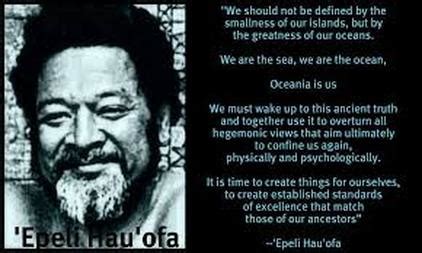A Quote by Lawrence Lessig
We always build on the past; the past always tries to stop us.
Related Quotes
We learn in the past, but we are not the result of that. We suffered in the past, loved in the past, cried and laughed in the past, but that's of no use to the present. The present has its challenges, its good and bad side. We can neither blame nor be grateful to the past for what is happening now. Each new experience of love has nothing whatsoever to do with past experiences. It's always new.
That the past is ahead, in front of us, is a conception of time that helps us retain our memories and to be aware of its presents. What is behind us [the future] cannot be seen and is liable to be forgotten readily. What is ahead of us [the past] cannot be forgotten so readily or ignored, for it is in front of our minds' eyes, always reminding us of its presence. The past is alive in us, so in more than a metaphorical sense the dead are alive - we are our history.
You can always tell gifted and highly intelligent people as they always turn to the past. Any young person who knows anything that happened before 1980, or 1990, or 2000 for that matter, is immediately someone who is intelligent, probably creative, maybe a writer. Nobody who is drawn to the past and learning about the past is not gifted.
The past exists only in our memories, the future only in our plans. The present is our only reality. The tree that you are aware of intellectually, because of that small time lag, is always in the past and therefore is always unreal. Any intellectually conceived object is always in the past and therefore unreal. Reality is always the moment of vision before the intellectualization takes place. There is no other reality.
It is not the literal past that rules us, save, possibly, in a biological sense. It is images of the past. Each new historical era mirrors itself in the picture and active mythology of its past or of a past borrowed from other cultures. It tests its sense of identity, of regress or new achievement against that past.
what he sought was always something lying ahead, and even if it was a matter of the past it was a past that changed gradually as he advanced on his journey, because the traveller's past changes according to the route he has followed: not the immediate past, that is, to which each day that goes by adds a day, but the more remote past. Arriving at each new city, the traveller finds again a past of his that he did not know he had: the foreignness of what you no longer are or no longer possess lies in wait for you in foreign, unpossessed places.
Our American past always speaks to us with two voices: the voice of the past, and the voice of the present. We are always asking two quite different questions. Historians reading the words of John Winthrop usually ask, What did they mean to him? Citizens ask, What do they mean to us? Historians are trained to seek the original meaning; all of us want to know the present meaning.
We think that the world is limited and explained by its past. We tend to think that what happened in the past determines what is going to happen next, and we do not see that it is exactly the other way around! What is always the source of the world is the present; the past doesn't explain a thing. The past trails behind the present like the wake of a ship and eventually disappears.


































